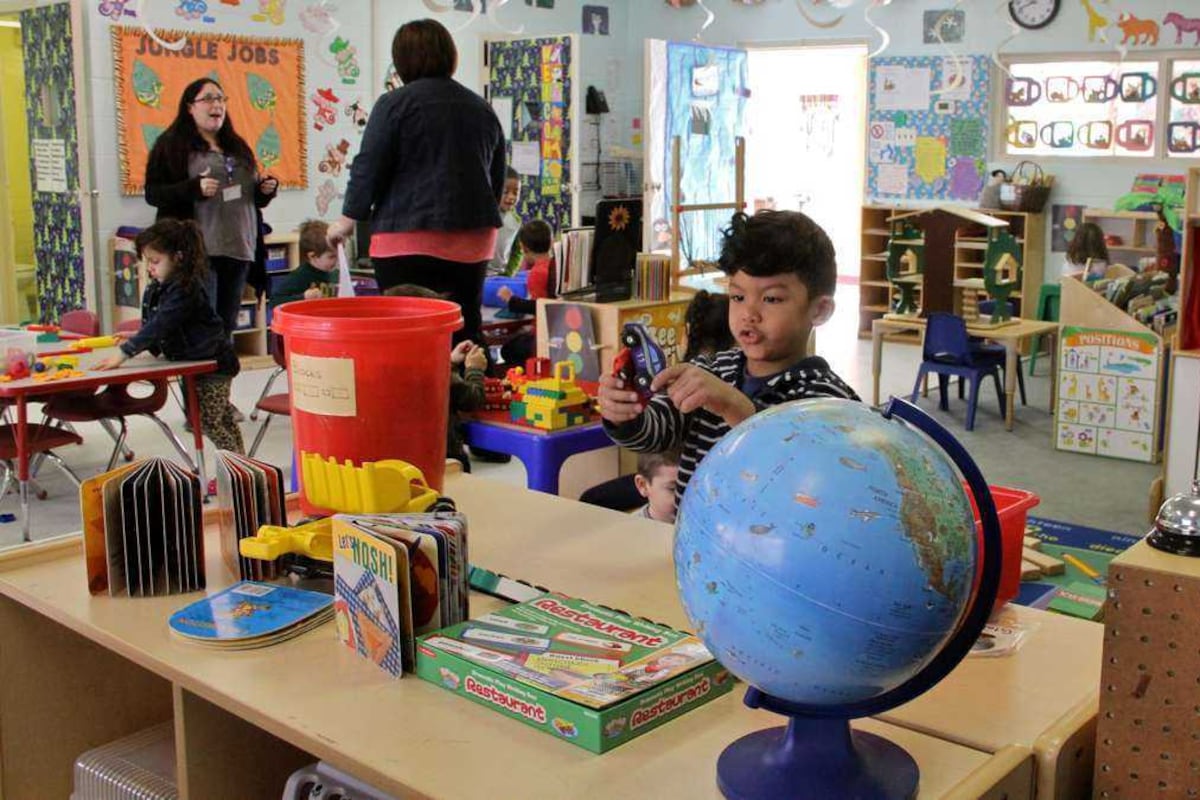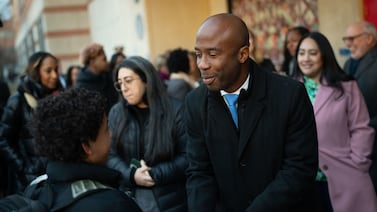Citing “inadequate” wages and warning of an impending mass exodus from the field, early childhood education advocates in Philadelphia and statewide say their sector is “on the brink of a breakdown.”
Those advocates are urging state lawmakers and Gov. Josh Shapiro to add more funding for childcare and early childhood education in the state budget this year. Without more money, they say employees will leave, programs will close, and children, families, and businesses in Pennsylvania will face “devastating consequences.”
Shapiro’s proposed budget includes $66.7 million in early childhood education funding. But advocates said that’s far from enough. They are calling for $430 million for increasing wages and expanding programs across Pennsylvania.
Roughly 50% of early childhood educators surveyed across the commonwealth said they were “unsure” or “intending to not be working in their jobs in five years,” Start Strong PA, a statewide early education advocacy group, said in a new report.
(The report was funded through a grant from the William Penn Foundation. Chalkbeat receives funding from the William Penn Foundation.)
Losing those workers would mean smaller programs with fewer teachers. That would leave more families in need of child care without an option, and keep more parents — especially women — out of the workforce, advocates say.
Sheila Moses, a former early childhood teacher, said Thursday at the Northeast Philadelphia YMCA, she had to leave her job as an educator because of the low wages.
“The tension I experienced as a single parent was overwhelming,” said Moses, who spoke at an event to promote the report hosted by the Start Strong and Children First advocacy groups. “I worked full-time and still needed welfare to support my family.”
The Start Strong report said that the child care sector in Philadelphia “is in crisis.” Its analysis found that 83% of Philadelphia-area programs have a staffing shortage, with 616 open positions across the city and 2,831 children on waitlists.
Using 2021 earnings data, the most recent available, the report also found that in all of Pennsylvania’s 67 counties, early childhood teachers’ earnings “failed to meet the cost-of-living” and were not sufficient to cover “basic necessities like housing, transportation and food.”
Wages varied across the state. The highest earners were in Union County, who make up to $31,320 annually, while teachers in Elk County earned as little as $15,408 per year.
In Philadelphia County, the estimated full-time hourly rate for these teachers was $14.37 for annual earnings of $29,884.
The report’s authors said early childhood workers earned less annually than housekeepers, hair stylists, landscapers, and retail workers.
Donna Cooper, executive director of Children First, said at the event Thursday that early childhood programs are losing teachers to businesses like Amazon that can pay higher wages and offer more immediate healthcare benefits.
Milagros Battiti, an early educator at KinderAcademy in Philadelphia, said at the event she’s been “struggling to provide basic necessities for myself” on her current earnings of $30,000 a year.
When her mother was diagnosed with terminal brain cancer in 2022, those struggles multiplied and she fell under the federal poverty line.
“I am not the dream I envisioned or worked hard towards,” Battiti said. “I’m just surviving day by day.”
Chalkbeat Philadelphia Senior Writer Dale Mezzacappa contributed to this story.
Carly Sitrin is the bureau chief for Chalkbeat Philadelphia. Contact Carly at csitrin@chalkbeat.org.






